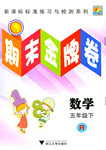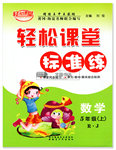
In the United States,children start school when they are five. In some states they must stay in school u 1 they are sixteen. Most students are seventeen or eighteen years old when they 12 secondary schools. There are two kinds of schools in the USA: public schools and private schools. Most children go to public schools. Their parents do not have to p 3 for their education. Those schools get money from the g 4 . If a child goes to a private school,his parents have to get enough money for his schooling.Some parents still prefer private schools,though they are much more e 5 . Today about half of the students go to university after they f 6 high school. A student at a state university does not have to pay very much if his parents 17 in that state.
Many students look for p 8 jobs while they are studying at universities. In this way they can form good w 9 habits and live by their o 10 hands.
1. 2. 3. 4. 5.
6. 7. 8. 9. 10.
五、 1. until 2. leave 3. pay 4. government 5. expensive
6. finish 7. live 8. parttime 9. working 10. own


 期末金牌卷系列答案
期末金牌卷系列答案 轻松课堂标准练系列答案
轻松课堂标准练系列答案科目:初中英语 来源: 题型:
“Excuse me” is used all over the world. But it is 1 used in the United States than in China. An American says “excuse me” when he wants to move to the other 2 of someone or when he 3 himself late for an appointment (约会).
“Thank you” means that you appreciate (对…感激) what someone has done 4 you. An American says it all day long. For example,he will thank the girl in a shop 5 she serves (为…服务) him. He will say it to the waiter when he 6 him a cup of drink. He will say “thank you” to the policeman when he 7 his way or does something else for him. And an American teacher will say “thank you” to a student 8 he just answers the question. At 9 , a husband will thank his wife when she gives him a cup of tea. And a wife will thank her husband for helping her with her 10 .
So American people’s ideas of being polite are quite different from ours.
() 1. A. more than B. much more often C. much less D. very often
() 2. A. end B. part C. top D. side
() 3. A. knows B. makes C. finds D. feels
() 4. A. at B. for C. with D. from
() 5. A. before B. and C. until D. after
() 6. A. brings B. takes C. carries D. holds
() 7. A. forgets B. loses C. shows D. finds
() 8. A. before B. if C. though D. till
() 9. A. work B. school C. home D. company
() 10. A. English B. homework C. housework D. lesson
查看答案和解析>>
科目:初中英语 来源: 题型:
() 1. —— Mum,can I help you with the cleaning?
Thank you? dear. But you are now. You must wait till you are.
A. too young;too old
B. too young;enough old
C. so young;enough old
D. too young;old enough
查看答案和解析>>
科目:初中英语 来源: 题型:
() 2. Look at the sign. It “No photos”.
A. says B. writes C. tells D. speaks
查看答案和解析>>
湖北省互联网违法和不良信息举报平台 | 网上有害信息举报专区 | 电信诈骗举报专区 | 涉历史虚无主义有害信息举报专区 | 涉企侵权举报专区
违法和不良信息举报电话:027-86699610 举报邮箱:58377363@163.com